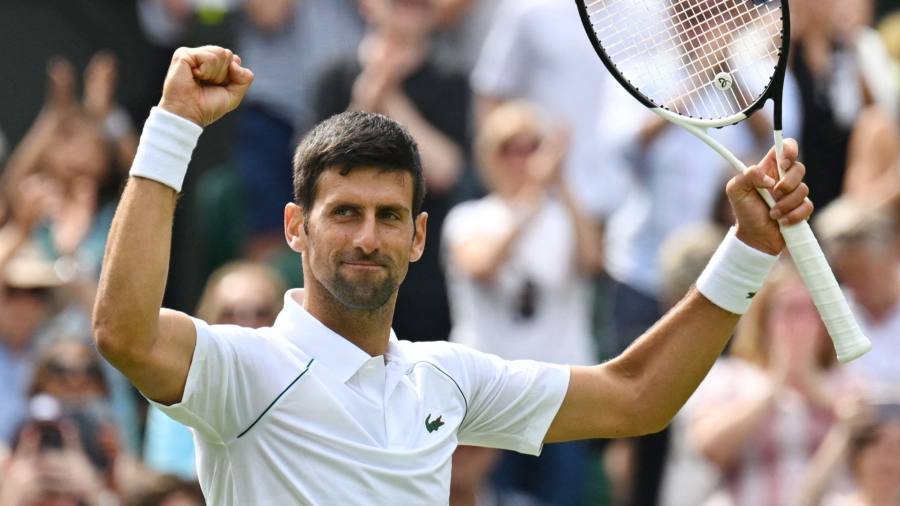
As defending champion Novak Djokovic fights to extend his record haul of major titles at Wimbledon, tennis is on the cusp of generational changes both on and off the court.
Following Rafael Nadal’s struggles with injury and Roger Federer’s retirement from the game last year, the Serb is defending his title as the only member of the men’s big three still competing at the championships this summer.
“He likes the challenge of playing younger guys. He is the best five-set player. He values every point better than anybody. He’s had more experience on the grass,” said American hall-of-famer Chris Evert, who won three Wimbledon titles among 18 major wins in her career.
The excitement of a changing of the guard at the top of the sport comes as tennis is adapting to an influx of private capital and growing pressure to address the game’s fragmented governance.
Even Wimbledon, renowned for strawberries, cream and tradition, is embracing change, unveiling a series of “digital experiences”, including entry into video game Fortnite and a gamified tennis app called Wimbledon Smash.
This will be far from the minds of spectators as they watch matches at the All England Club next week.
A fifth consecutive Wimbledon title would give Djokovic his 24th grand slam win, extending his record in the men’s game and moving him one clear of Serena Williams’ record of 23 in the Open Era.
Since Lleyton Hewitt won Wimbledon in 2002, only Covid has stopped either Federer, Djokovic, Nadal or Andy Murray from winning the men’s singles, as Wimbledon was scrapped altogether in 2020.
But just days before the start of this year’s tournament, Spain’s Carlos Alcaraz, 20, won his first grass court title at Queen’s, replacing Djokovic, 36, at the top of the world rankings and becoming the number-one seed at Wimbledon.
The young Spaniard is “learning quick”, said John McEnroe, the tennis commentator and three-times Wimbledon men’s champion, but he cautioned that Djokovic remained a “big favourite”.
The Serb defeated Alcaraz in the semi-finals at Roland-Garros in June, in an intergenerational battle made possible thanks to the Serb’s longevity.
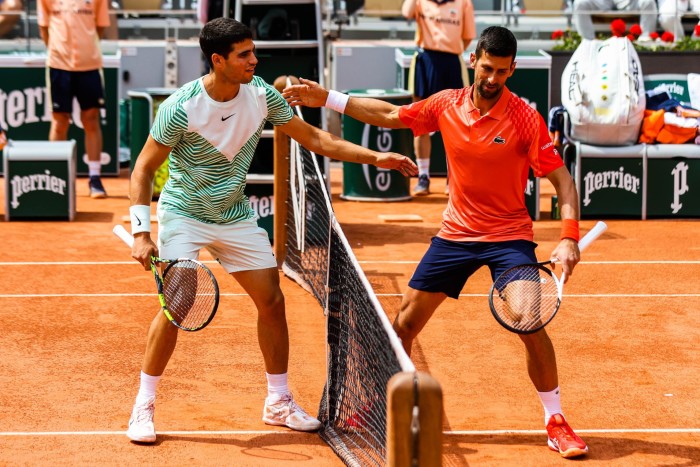
“I love to see Alcaraz playing against Novak,” said Andrea Gaudenzi, chair of the ATP Tour, the governing body for the men’s game. “There is a great contrast in that battle, sort of like handing over a baton to the next generation. You don’t necessarily always want to see a same generation battle.”
There is no clear successor to Serena Williams, the last woman to win Wimbledon two years running, with victories in 2015 and 2016. There have been five different winners since then — all first-time Wimbledon champions.
Serena Williams and her sister, Venus, won eight out of 10 Wimbledon championships in the 2000s. While Venus is competing again this year, thanks to a wild-card entry, Serena retired last year.
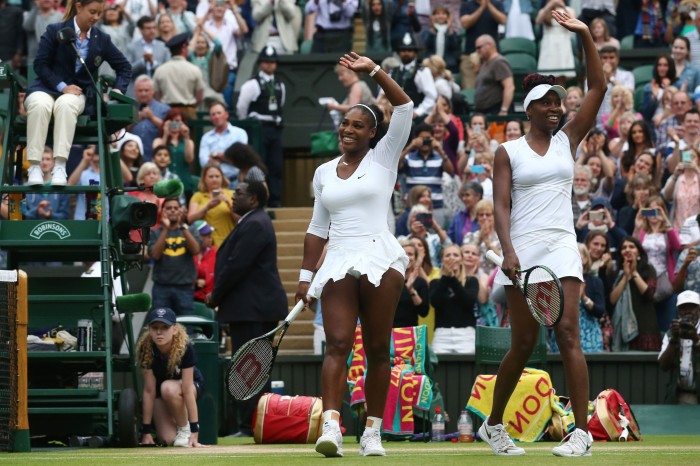
This leaves women’s tennis without a dominant all-surface champion in the mould of Martina Navratilova, who won six of her record nine Wimbledon singles titles in the 1980s, or Steffi Graf, who won it seven times from 1988-1996.
Poland’s Iga Świątek is the number-one seed going into this year’s championships, with Belarusian player Aryna Sabalenka in second, followed by last year’s winner, Elena Rybakina of Kazakhstan.
Świątek has never made it beyond the fourth round at Wimbledon, preferring hard courts and clay to the grass surface in west London, while defending champion Rybakina is fighting for fitness after a virus earlier this year that forced her to withdraw from the French Open.
“I wouldn’t put her on the top of my list, even though she’s defending champion,” said Evert.
But as tennis bids farewell to its great champions it is finding new ways of promoting the next generation of talent, such as the Break Point documentary series on Netflix.
Evert said the series had revealed the strain on Sabalenka, a native of Belarus, as Belarusians and Russians prepare to return to Wimbledon after a ban last year following the invasion of Ukraine.
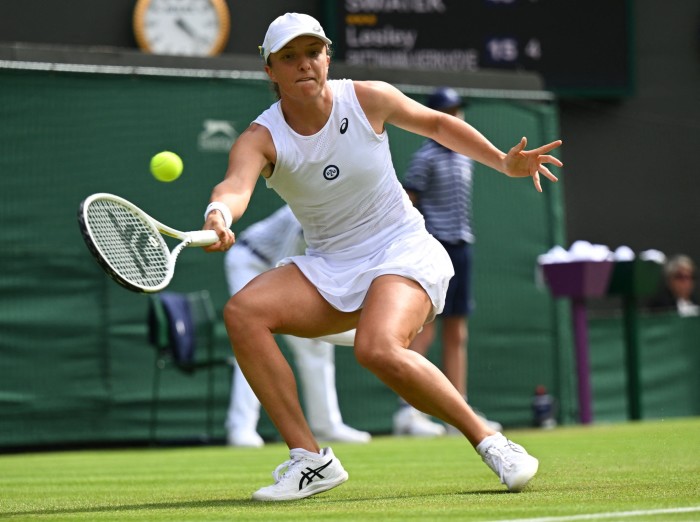
Describing how Sabalenka had broken down during one episode over the pressure the war had placed on her, Evert said: “We’re getting a different side of these players from watching those programmes. I think that’s going to do nothing but help the game of tennis.”
The Netflix series also saw the sport’s governing bodies connecting to promote tennis, part of a drive by Wimbledon, the Australian Open, Roland-Garros and the US Open to work with the ATP and the Women’s Tennis Association to increase cohesion and reduce fragmentation.
Power in tennis is split across numerous governing bodies, including the ATP and WTA. The grand slams are run separately and the International Tennis Federation, the world governing body, runs the Billie Jean King Cup and the Davis Cup.
But as Wimbledon moved into its final weekend last year, the four slams published a statement of intent to “accelerate collaboration and explore new opportunities” in areas such as content and merchandise.
Gaudenzi, who was re-elected as ATP chair this month, said the priority in his second term was to reduce fragmentation in the game. “We have a billion fans but because we’re fragmented, we struggle with delivering an ideal experience,” he said.
Tennis is also adapting to the growing importance of private capital and sovereign wealth funds in sport.
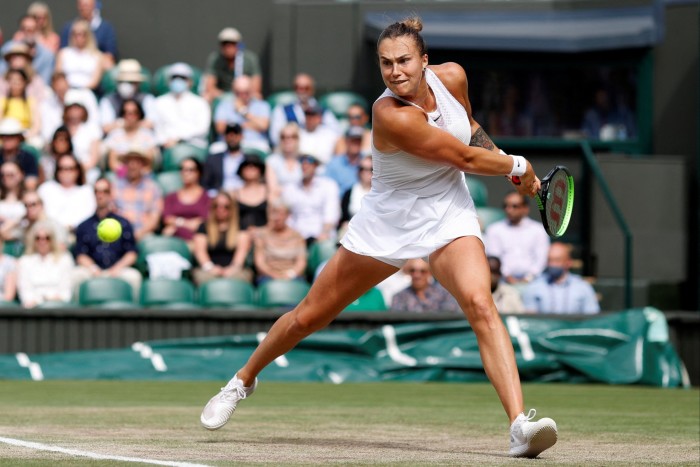
In March, the WTA partnered with private equity group CVC Capital Partners, which invested $150mn for a 20 per cent stake in a new commercial venture designed to boost the profile of players and tournaments.
CVC has offices across Europe, Australasia and the Americas, and experience in sports ranging from Formula One car racing to top-flight Spanish football, rugby and Indian Premier League cricket.
Meanwhile, the FT reported earlier this month that the ATP has held talks with Saudi Arabia’s Public Investment Fund about potential investments and events.
McEnroe said that modern tennis had become “more of a business”, and took aim at the power struggle between the US PGA Tour and PIF that has consumed the golf world.
“Eventually you get bought out,” McEnroe said. “I don’t know why in the hell tennis would suddenly be, ‘Let’s talk to the Saudis after the debacle that you’re watching in golf’. To me it’s comical that it’s even being brought up right now.”